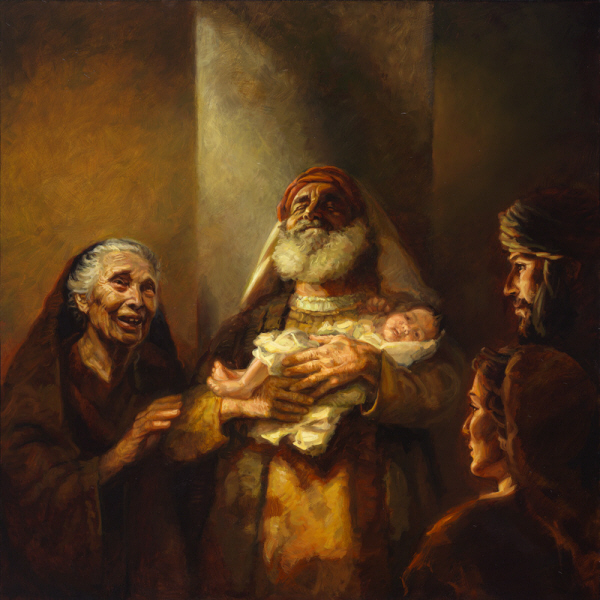
Collections & Revelations

Merry Christmas and a Happy New Year to all God’s Children!
Read more...

Deceptive Distractions

Read more...

Perilous Presents

Generosity is often displayed by refusing to give or receive a gift that would harm (spiritually, soulfully, physically) the receiver and/or giver. We live in a society of instant gratification and have the means to fulfill every pleasure, so it is important to consider our gifts and the consequences of giving them—especially to our children. In kindergarten I received the gift of a comic book from a fellow classmate because he knew I enjoyed superheroes. When I showed my parents the present, they requested I graciously return the comic with the explanation that the comic’s main hero was the son of Lucifer, and we, as a family believed Christ to be our hero over Satan. Devastated, I did what they instructed me to do.
Read more...

Make Room

Read the story of the Shunammite Woman in II Kings 4:8-37; 8:1-6
Read more...

Thanks & Giving

Anna saw the end of the civil war as Roman general, Pompey, would massacre 12,000 of her countryman and desecrate the Holy of Holies at the temple in Jerusalem, leading to Judea’s rule by Rome. This was happening all the while Anna remained at the temple worshiping and praising God for the promised Messiah. (Pause for Thought: “Be joyful always; pray continually; give thanks in all circumstances, for this is God’s will for you in Christ Jesus.”—I Thessalonians 5:16-17. What promises are you giving God thanks for this week? How can the giving of your time, talent, resources—self, be a fulfillment of these promises? How is your family helping God’s fulfillment of these promises in others?)
In her lifetime, Anna witnessed, or would have heard about, king and high-priest Jannaeus’ contempt for Israel’s religious leaders, and his defilement of the sacrifice during the Feast of Tabernacles resulting in the slaughter of 6,000 Jews in the temple courtyard and a civil war that would last decades.
Anna’s proximity to tragedy never impaired her devotion to God or her faith in Him—“she never left the temple but worshiped night and day, fasting and praying. Coming up to them (Mary & Joseph), she gave thanks to God and spoke about the child (Jesus) to all who were looking forward to the redemption of Israel.” Her thankfulness led to and was a service of instruction and realization for others in recognizing Jesus Christ as Lord and Savior. (Pause for Thought: Read the story of Simeon and Anna in Luke 2:21-38. How well does your family live out their thankfulness? How will you use this Thanksgiving to instruct your children about thankfulness and giving?)
Read more...

The Umbrella of Authority

I often wonder how this story might have ended for Moses and the Israelites who first left Egypt had Moses remained under his authorities’ umbrella, and not killed the Egyptian out of his own arrogance. I often wonder about our children’s journey and ending in this life as they serve their authorities, including the Most-High Authority—God our Father. (Pause for Thought: Is there something or someone causing your children distress? Have you given your children a time and place to appeal to you for advice, and if appropriate, your correction/solution to the matter? What/Who will you pray about with your children this week?)
Read more...

The Endurance of the Like-Minded

Read more...

First Things First

First Things First
The tragic story of the cowbird doesn’t end with the destruction of just one egg. Most nest builders will accept the cowbird egg and try to raise the chick as their own. However, the cowbird grows fast and large to the point it will out compete the other chicks for food until they die. A few birds, like the robin, will recognize the intruding cowbird egg, and its parent’s selfish intent. The egg will either be destroyed or covered up with the rest of the eggs in hopes a second nest will not be invaded. (Pause for Thought: “He must manage his own family well and see that his children obey him with proper respect. If anyone does not know how to manage his own family, how can he take care of God’s church?” I Timothy 3:4-5. How will you make the spiritual welfare of your family a priority this week? Is there something you have to give up to make this so? How will you do it?)
Read more...

For Crying Out Loud

Read more...

The Rigidity of Bitterness

Read more...
